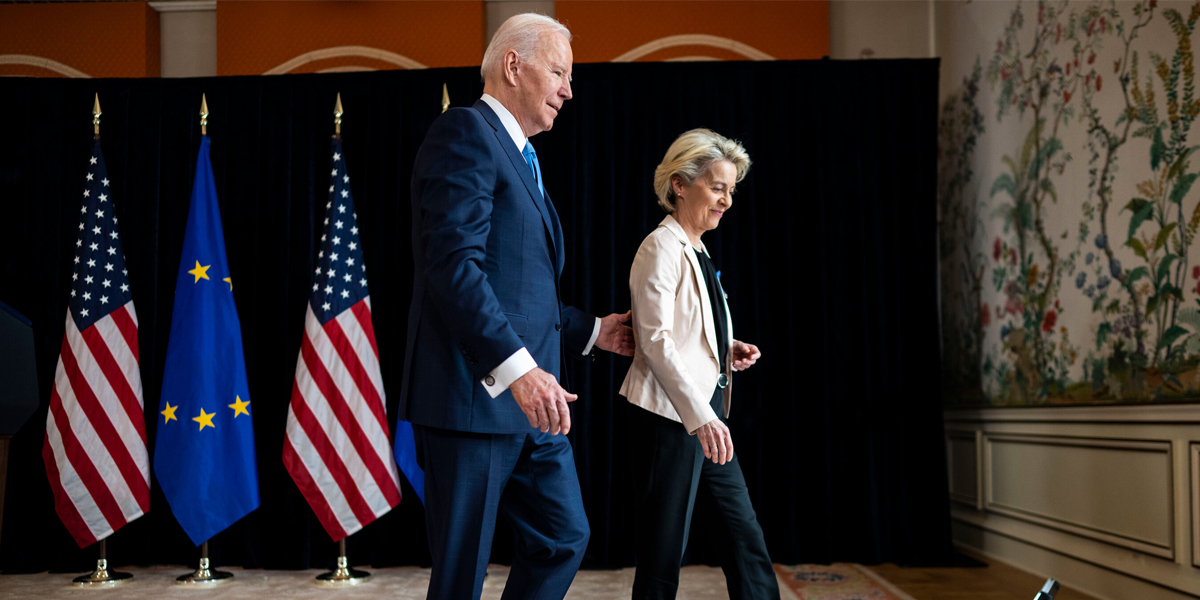The ongoing conflict between Ukraine and Russia has placed Europe in a dilemma. For years now, Europe has been dependent on Russian gas supplies during winter. However, as a consequence of the conflict and Western-imposed sanctions, Europe has been under pressure by the US to diversify its requirements. Furthermore, the Biden administration’s manipulative use of the Russian-Ukrainian war to advance its own interests at their expense has infuriated Europeans. A case in point is the US charging the Europeans four times more for natural gas supplies than it does for domestic sales, especially in these times of crisis.
Ever since the election of Democratic candidate Joe Biden as President of the United States, the hawkish European NATO partners have heaved a sigh of relief. It is no secret that former President Donald Trump was not in favor of continuing support for the US-led NATO alliance, mainly for political and financial reasons. Europe got cold feet as it began to feel left out of any form of defensive shield and realised that, if there ever was a threat from Russia, it could not defend itself without US support.
However, all that changed with Joe Biden`s election as President. Being a staunchly anti-Russian and anti-communist follower, one of his first declarations that he announced as President was “America is back”. His statement was made specifically to pacify his NATO allies in Europe and assure them of continued US support to the alliance, unlike his predecessor Donald Trump. Unfortunately, though, he brought the US and Russia back to the Cold-War era, with Europe helplessly following.
Under US pressure and direction, NATO has been pursuing an expansionist policy in Europe for a while. Its principal objective is to corner Russia, despite the fact that this strategy has backfired. They say that, if you keep poking a bear with a stick, it will react, hence Russia seeing itself cornered by NATO`s insistence on Ukraine to join the alliance, the bear reacted and Russia invaded. Given their proximity, it makes sense that it won’t permit Ukraine to host US troops and missile bases on its borders. The Russian incursion appears to be a direct warning to the US and its allies in Europe to back off.
The ongoing conflict between Ukraine and Russia has placed Europe in a dilemma. For years now, Europe has been dependent on Russian gas supplies during winter. However, as a consequence of the conflict and Western-imposed sanctions, Europe has been under pressure by the US to diversify its requirements. Secondly, the continent finds itself stuck between superpower rivalry, where countries like Germany and Hungary want a softer approach towards Russia, while others like Poland and Sweden are for harsher sanctions and isolation of Russia. This approach has led to division within the European Union (EU) and plays out well for the US.
For decades now, American economic populism and geo-political rifts have threatened the competitiveness of the EU, and the Biden administration’s manipulative use of the Russian-Ukrainian war to advance its own interests at their expense has infuriated Europeans. A case in point is the US charging the Europeans four times more for natural gas supplies than it does for domestic sales, especially in these times of crisis. Furthermore, Biden`s “Inflation Reduction Act’ is showering US Corporate giants with hundreds of billions of dollars in subsidies, undercutting their European competitors and his “Made in America” drive is undermining transatlantic trade.
What is happening is that for all of President Biden`s promises to restore faith and confidence in the NATO alliance, it is in contrast creating rifts within the Union. The present US administration is doing today what previous US administrations did during the height of the Cold War, keeping the Russians out, Germany and France on the sidelines and as expected, the US at the center.
Under arrangement between Matrix and CRSS.
 Zehra Zaidi
Zehra Zaidi

